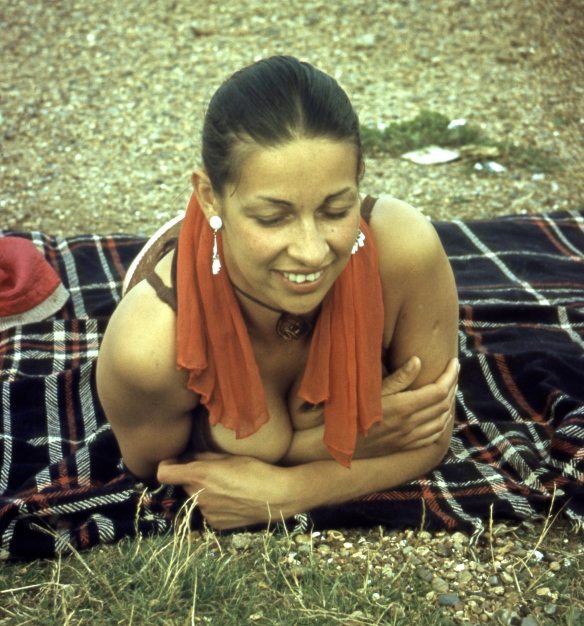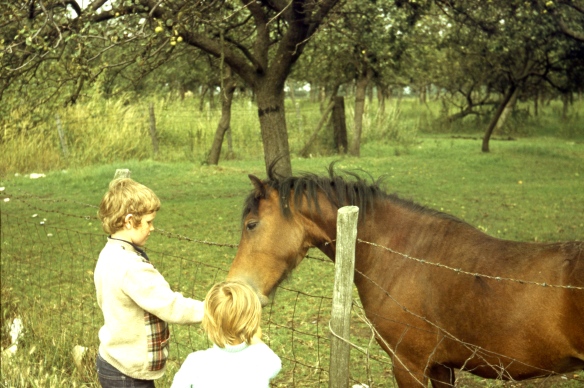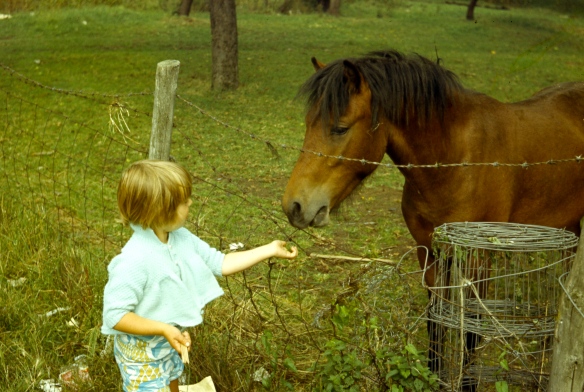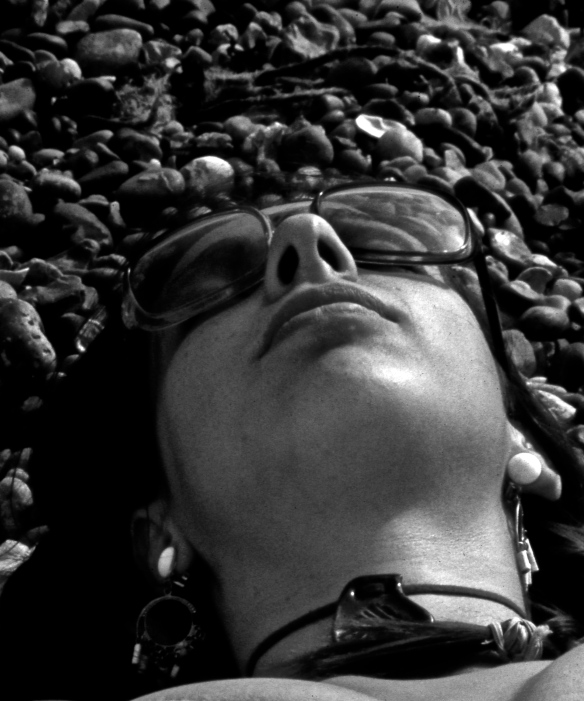This afternoon I scanned a batch of colour slides from a holiday at Iwade in August 1972. One has already featured in ‘The Hat’. Here are some of the others: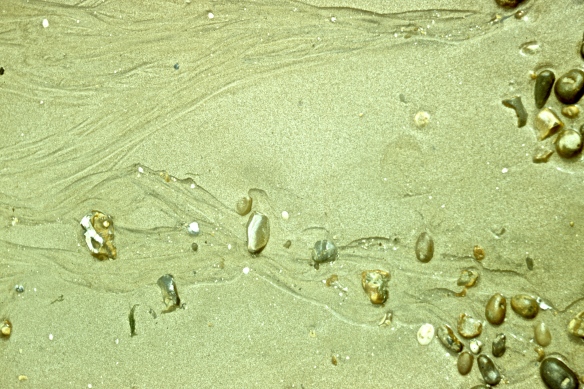
Pebbles on the sand at the Isle of Sheppey were quite thinly spread near the water’s edge, but covered the beach further up, where Becky trudged over them undeterred, but with great concentration; and Jackie made use of the car blanket to render the stones a little softer to the touch.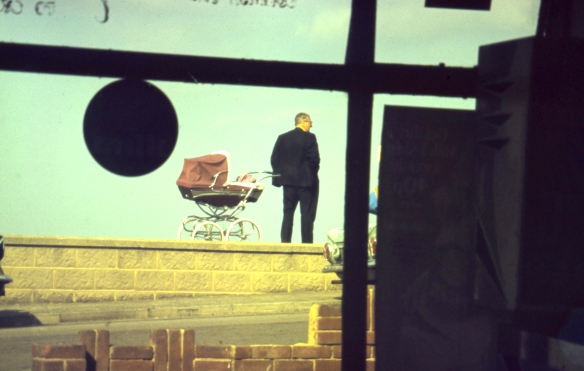
From a cafe in which we took refreshments I noticed a gentleman apparently in charge of a pram on the sea wall. Was the pram occupied? Had he turned his back on it for a purpose?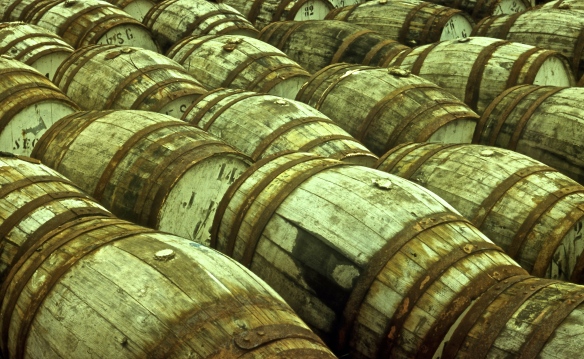
I cannot remember what these rows of stout barrels with rusting hoops were doing in Iwade, apart from providing an interesting subject. I don’t think they ever contained the wallies mentioned below.
Michael and Matthew, both with a certain trepidation, stopped to feed foliage to a horse in a field. First Mat hid behind his big brother; then joined him; and finally managed the task alone.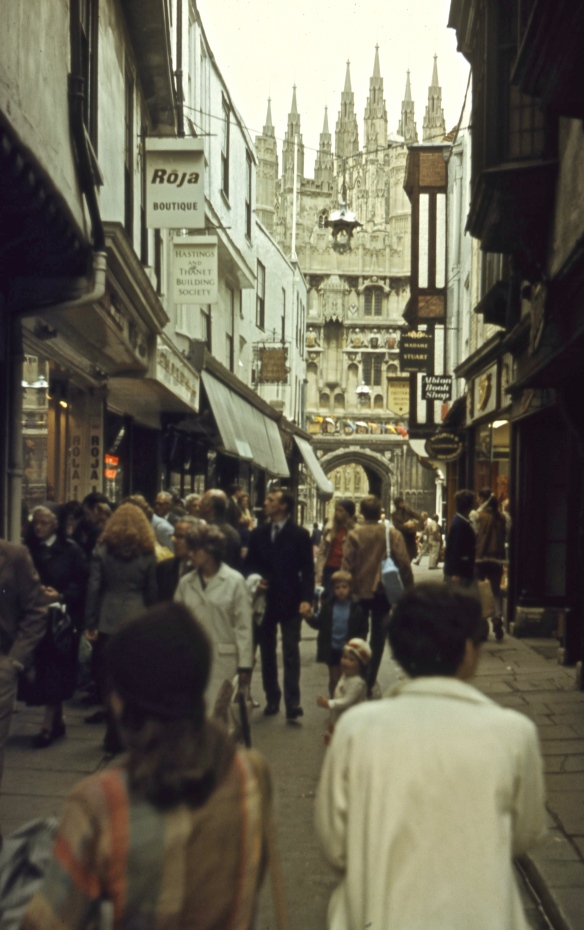
We took a trip to Canterbury where I photographed the cathedral down a side street in which Becky turns towards me, sporting her crocheted hat.
My final iPhoto project today was to crop a picture of the basking beach beauty and convert it to black and white. Which do you prefer? Jackie had, incidentally, made her own chokers, some of which were to be sold from her ‘Kingston Market Stall’.
Mr Pink provided this evening’s fish and chips, pickled onions and gherkins, with which I drank more of the Teroldego Rotaliano, and Jackie didn’t. Both the onions and the also pickled gherkins are sold in ‘chippies’ from large jars.on the counter. There may also be jars of pickled eggs. A chippy is the colloquial term for a fish and chip shop. The slang name for a pickled gherkin is a ‘wally’ which according to kgb answers ‘was a London slang corruption of the word “Olive”. When Eastern European immigrants arrived in the late 19th Century they carried a liking for pickled cucumbers which, like olives, were sold from wooden barrels and also began to be referred to as wallies (mostly in the east-end of London).’

